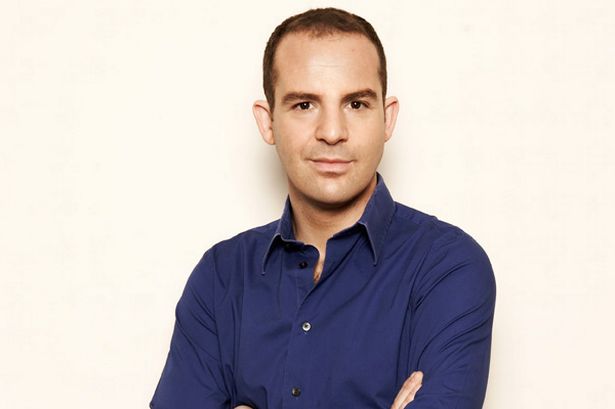The government is facing fresh calls to step in and support the estimated 195,000 mortgage prisoners in the UK, following the publication of a report by the London School of Economics (LSE).
Figures highlighted in the report suggest the government made a surplus £2.4bn as a result of mortgage loan book sales.
Estimates from the Financial Conduct Authority (FCA) suggested there were 195,000 households, as of June 2021, either in closed mortgage books or who had mortgages now owned by firms it no longer regulated. The regulator also suggested that not all of them would benefit financially from remortgaging, significantly because some have modest mortgages outstanding or little time left to run on their term, and the cost of switching could exceed the cost of staying on their current arrangements.
The newly published LSE report, titled Releasing the Mortgage Prisoners, outlined that the problem of mortgage prisoners was largely created by “the actions of successive UK governments” in trying to address the “excessively risky lending of the early 2000s”.
When Northern Rock and Bradford & Bingley, both major mortgage lenders, failed in 2008, the businesses and their loan portfolios – including an estimated 740,000 homeowner and buy-to-let mortgages – were taken into government ownership.
In 2010, the government transferred the loan portfolios to a new organisation which it 100% owned, UK Asset Resolution (UKAR). This organisation has been responsible for managing the remaining liabilities and other strategic matters arising out of the government’s former ownership of Northern Rock Asset Management, Bradford & Bingley, Mortgage Express and their respective subsidiaries. UKAR’s remit has been to facilitate the orderly management and disposal of the closed mortgage books.
The LSE highlighted that UKAR has progressively disposed of these loans in a series of separate transactions. It owned £56bn worth of residential mortgages in 2010, and in February 2021 agreed to sell all remaining loan assets to investment management business, Davidson Kempner, which concluded in late October 2021.
“Following the government’s interventions in 2008, UKAR’s former subsidiaries had access to low or zero-cost funding, without which their capital base would have been eroded and they would not have made profits,” the LSE report stated. “The UK taxpayer has borne the costs of this funding over the past 10 years.”
UKAR has now fully repaid the government loans and surplus funds are now being distributed to the Treasury through dividends, with £4.85bn over the organisation’s lifetime so far.
The LSE’s report added: “The taxpayer has substantially recovered all actual and opportunity costs suffered as a result of the creation of UKAR, and indicated that sale of UKAR portfolios had generated a £2.4bn surplus.
“It might well be argued that this gives sufficient headroom to allow government to step forward and help struggling borrowers with ex-UKAR loans.”
Latest News
-
Residential property transactions fall 24% month-on-month
-
Later life lending loans jump 5.1% in Q4 2025
-
Mortgage Awards 2026: Winners announced
-
FCA outlines proposals to close gaps in borrowers’ credit files
-
St. James’s Place closes 2025 with record FuM
-
Average LTV on UK mortgaged home drops to 59% – IMLA
Mortgage Advice Bureau and AI in the mortgage sector
Chief executive officer at Mortgage Advice Bureau, Peter Brodnicki, and founder and managing director at Heron Financial, Matt Coulson, joined content editor Dan McGrath to discuss how Mortgage Advice Bureau is using artificial intelligence to make advancements in the mortgage industry, the limitations of this technology and what 2026 will hold for the market
Perenna and the long-term fixed mortgage market

Content editor, Dan McGrath, spoke to head of product, proposition and distribution at Perenna, John Davison, to explore the long-term fixed mortgage market, the role that Perenna plays in this sector and the impact of the recent Autumn Budget
NEW BUILD IN FOCUS - NEW EPISODE OF THE MORTGAGE INSIDER PODCAST, OUT NOW

Figures from the National House-Building Council saw Q1 2025 register a 36% increase in new homes built across the UK compared with the same period last year, representing a striking development for the first-time buyer market. But with the higher cost of building, ongoing planning challenges and new and changing regulations, how sustainable is this growth? And what does it mean for brokers?
Does the North-South divide still exist in the UK housing market?

What do the most expensive parts of the country reveal about shifting demand? And why is the Manchester housing market now outperforming many southern counterparts?
In this episode of the Barclays Mortgage Insider Podcast, host Phil Spencer is joined by Lucian Cook, Head of Research at Savills, and Ross Jones, founder of Home Financial and Evolve Commercial Finance, to explore how regional trends are redefining the UK housing, mortgage and buy-to-let markets.
In this episode of the Barclays Mortgage Insider Podcast, host Phil Spencer is joined by Lucian Cook, Head of Research at Savills, and Ross Jones, founder of Home Financial and Evolve Commercial Finance, to explore how regional trends are redefining the UK housing, mortgage and buy-to-let markets.
© 2019 Perspective Publishing Privacy & Cookies











Recent Stories